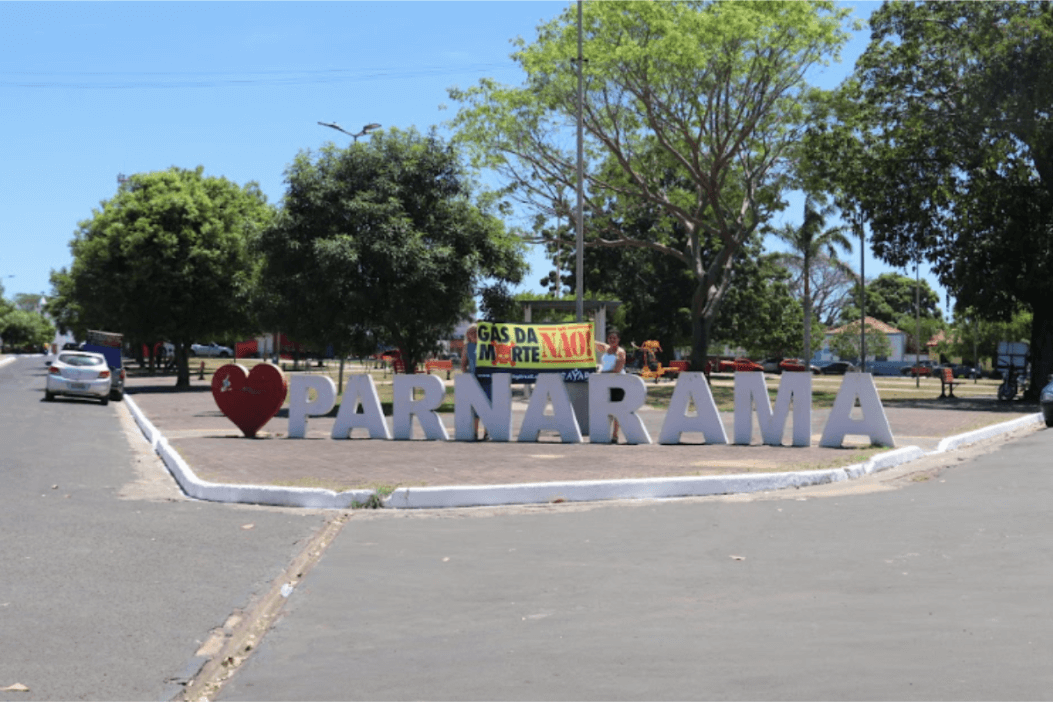Councilors and deputy mayor of the Maranhão city say that the actions of oil companies were carried out silently
What is fracking?
Fracking – also called hydraulic fracturing – is a process that involves injecting large volumes of water, chemicals and sand at high pressure into underground rock layers to release trapped natural gas. Despite being a technique already used in several countries, it is controversial because it causes environmental and ecological damage, including contamination of groundwater, release of greenhouse gases, induced earthquakes, etc.
Parnarama, Maranhão, participated in a training session, on September 12, 2022, in the plenary of the City Council, which dealt with the risks and problems caused by fracking. The event was attended by councilors from the municipality and neighboring cities, representatives of community health agents, quilombolas and members of the rural workers’ union. In addition to the deputy mayor and members of civil society, who closely followed the hearing. In addition to members of COESUS – Coalition No Fracking Brazil for Water and Life, a campaign by the Arayara International Institute.
After the hearing, the councilors spoke about companies that had carried out research in the municipality during the previous administration. They reported that a large convoy consisting of several pickup trucks, jeeps and five nine-axle trucks carrying drilling equipment traveled through the region. The trucks transported the equipment, which was assembled in a complex containing overnight containers for employees, an ambulance for emergency cases, tow trucks and other necessary equipment.
According to the councilors, the whole process was carried out quickly, without consulting the population. One of the parliamentarians, who previously did not hold public office, reported having questioned one of the company’s employees, but the responses were evasive. “As soon as they arrived and performed their deeds, they departed in silence.”
The deputy mayor of the municipality, Gilson Moura (Gilson Da Silva Leite), from the PCdoB, reported to the COESUS team that he saw several company jeeps circulating both in the city and in rural areas. When approaching them, he did not obtain any satisfactory explanation. In addition, the deputy mayor informed that both he and the mayor will approve a law against the hydraulic fracturing technique in the municipality.
Councilor Querida Moura (Eliane Geisteira de Moura Leite), from the PP, stated that she was aware of the presence of the trucks and sent a video to the COESUS team, dated January 18, 2008, showing the community of Paiol do Centro, located 50 km from the municipal seat, during a flood. The video reveals an overflow of the river that resembles an explosion, raising the water level by 2 meters, according to the councilwoman. Technician Isaías Lima da Silva, from Trat’Água, was present at the site along with teachers from the community of Paiol do Centro.
Three years before the video, in the same location, 40 head of cattle disappeared to the ground in a kind of quicksand. They tried to rescue some animals, but they were lifeless. Several cracks and a large crater with water were observed at the site. According to the explanation of the technician responsible for collecting materials at the site, the cracks and craters are the result of explosions caused by the production of carbon dioxide, which comes from a natural process of decomposition of organic matter from animals and plants.
This gas penetrates the fissures of the rocks and, in the absence of oxygen, anaerobic explosions occur, releasing the gas into the atmosphere. As a result, the ground gives way, causing cracks and craters. The technician recommended isolating the area to avoid accidents and stated that the crater could swallow the forest around it. At the time of recording the video, no action had been taken.
These alarming events highlight the need for careful monitoring and planning of activities carried out in the municipality, in order to protect the environment, the population and the local fauna. It is essential that local authorities are aware of the potential impacts of these actions and promote community participation in decisions that directly affect their lives and the ecosystem in which they are inserted.












